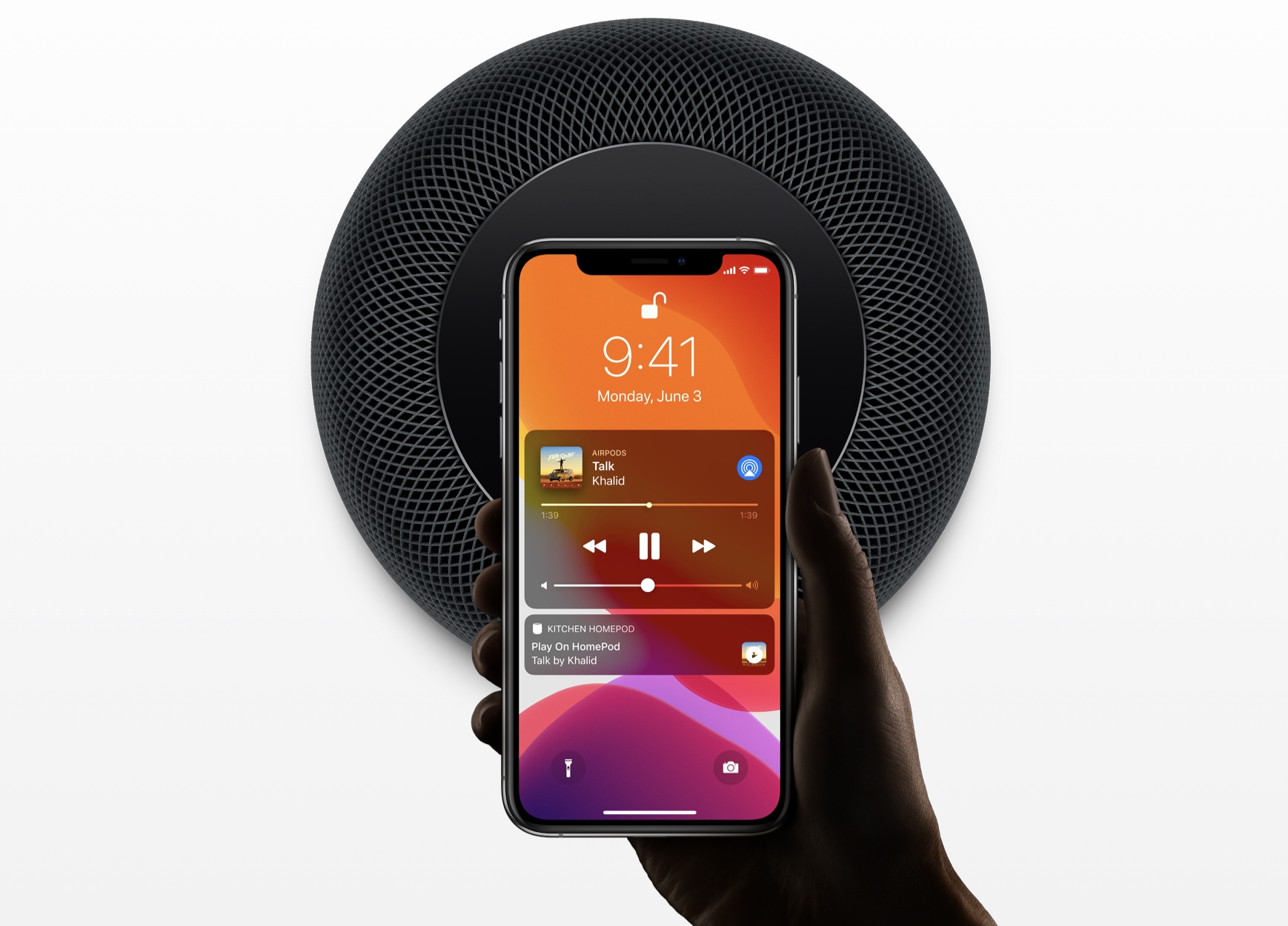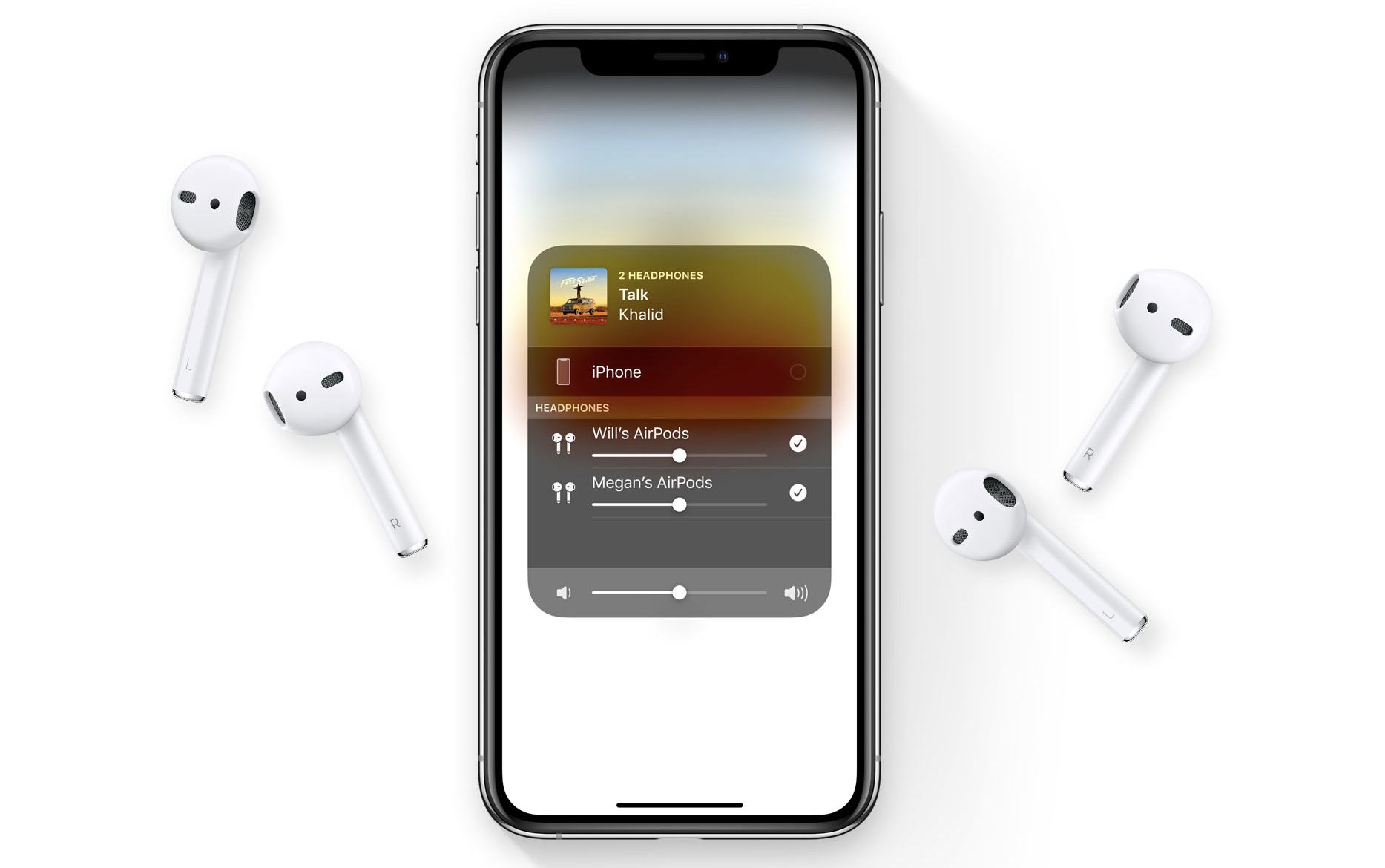Amid yesterday’s packed WWDC keynote, where iOS 13, iPadOS, the new Mac Pro, and more were announced, Apple also shared a few exciting updates coming this fall for its music-focused accessory products: HomePod and AirPods. The HomePod will soon support multiple users, a new Handoff feature, and radio apps, while AirPods will gain audio sharing and a special Siri feature for messaging.
HomePod
When iOS 13 launches, HomePod will offer support for multiple users for the first time. Up to six different voices can be configured with the HomePod, such that when different family members speak to the device, Siri will know who’s talking and respond in a personalized way. Multi-user personalization extends to both Apple Music and Personal Requests – with the former, HomePod will tie listening history to each individual’s preferences, so asking Siri to “Play some music” will result in hearing a station custom-tailored for you. Personal Requests are the feature HomePod uses to tap into a user’s reminders, calendar events, and more. Previously, Personal Requests could only be configured with a single user, and access to data from Messages, Notes, and the like would be unavailable if that person left home; now, each member of the household can have their own Personal Requests tied to their own Apple ID, offering a much-improved experience.
Beyond multi-user support, the HomePod is also gaining a new Handoff feature in partnership with the iPhone. Whenever you’re listening to music or a podcast on your iPhone, or if you’re on a phone call, holding your device next to the HomePod will seamlessly hand off that audio to the HomePod. The feature works in reverse too: if you’re playing something on HomePod but need to head out the door, you can hold your iPhone next to the HomePod to move audio routing to the iPhone. I’m curious to see how this works in practice, especially when you throw AirPods into the mix that are connected to the iPhone, but it’s an exciting idea that demonstrates Apple’s ability to craft seamless ecosystem integrations.
Finally in HomePod announcements, the device is gaining access to over 100,000 radio stations from around the world via support for iHeartRadio, Radio.com, and more.
AirPods
In a rare but welcome development, Apple announced software improvements coming to AirPods in its WWDC keynote. In iOS 13, a new audio sharing feature will enable AirPods to be shared between two people for listening to the same stream of audio – whether a song, podcast, or the audio component of a video. Audio sharing engages when you tap your phone on to someone else’s, splitting audio into two identical streams that can each have their volume levels adjusted separately. It’s the perfect feature for couples or friends who want to enjoy a song or video together.
The second new feature coming to AirPods is that Siri will automatically announce messages you receive and enable you to respond to them instantly by voice, without the need for a ‘Hey Siri’ activation phrase. This will work both with Apple’s Messages app and every other third-party messaging app – when a message arrives, depending on if you’re in the middle of something like a phone call, Siri will either deliver the message immediately or wait until the call’s over. Once Siri reads your message, you can dictate a reply instantly just by speaking naturally, with no ‘Hey Siri’ preface. Since messaging interruptions could quickly grow annoying if left unchecked, Apple will include the ability to custom-configure which of your contacts Siri should alert you of messages from. The only drawback of this feature is that it’s exclusive to the second-generation AirPods.
It’s unusual for software updates to the HomePod and AirPods, which Apple deems mere accessories, to be highlighted during the WWDC keynote. That said, I found it a welcome change from the norm. All the features announced for these products are thoughtful enhancements I can see myself using regularly. I’m especially glad the HomePod is gaining multi-user support, but the other enhancements for HomePod and AirPods have me excited too – they’re the kind of features that feel like magic when done right, and I’m eager to see if Apple can pull them off.
You can also follow all of our WWDC coverage through our WWDC 2019 hub, or subscribe to the dedicated WWDC 2019 RSS feed.




